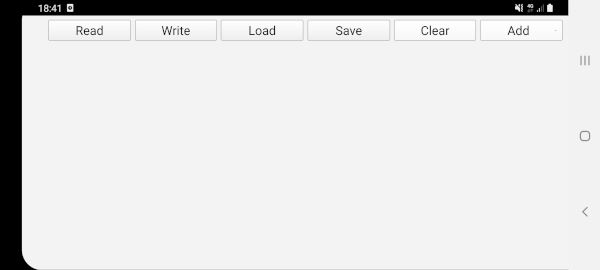
Reads and writes NFC Data Exchange Format (NDEF) messages to NFC Forum Tags.
The NDEF Editor example uses Qt NFC to read and write NFC Data Exchange Format (NDEF) messages to NFC Forum Tags. NDEF messages can be composed by adding text and URI records. Records can be deleted by swiping them to the left.
Press Write to Tag to write the records to an NFC tag.
Press Read Tag to read the contents of an NFC tag. A successful read of an NFC tag replaces the manually added records with the NDEF message from the tag. If the read operation was cancelled or failed, the NDEF message remains unchanged.

See also Qt NFC.

As part of the free Business evaluation, we offer a free welcome call for companies, to talk about your requirements, and how the Felgo SDK & Services can help you. Just sign up and schedule your call.
Sign up now to start your free Business evaluation:

